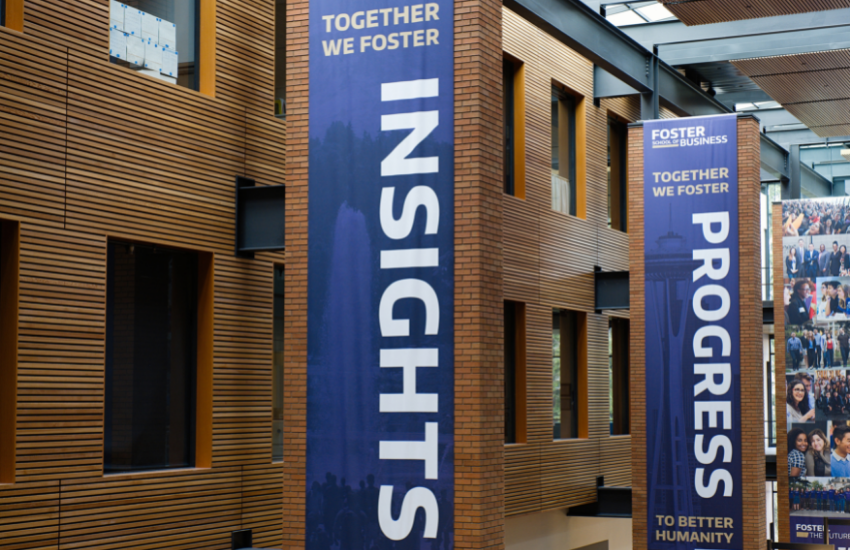Washington Research Foundation awards $300,000 to support new startup accelerator at UW Foster School of Business
The University of Washington today announced a $300,000 grant from Washington Research Foundation (WRF) to support the recently launched Creative Destruction Lab (CDL) partnership with the Foster School of Business.
CDL-Seattle is the third U.S. location for Creative Destruction Lab, a nonprofit organization delivering an objectives-based program for massively scalable, seed-stage, science- and technology-based companies.

The initial area of focus for CDL-Seattle is computational health, which exists at the interface of biomedical signal processing, computational modeling, machine learning and health informatics to drive innovation in research, clinical and customer-facing applications. Examples of publicly-traded companies in the field of computational health include Adaptive Biotechnologies and Accolade.
“We are excited to play a role in the launch of CDL-Seattle,”said Meher Antia, Ph.D., WRF’s director of grant programs. “The focus on computational health incorporates key strengths of the region that when combined with the UW’s world-renowned scholars have the potential to launch companies that revolutionize healthcare outcomes.”
Twenty companies have been selected as the inaugural CDL-Seattle cohort and will begin the nine-month program in November 2021. All will benefit from mentorship from local entrepreneurs and angel investors, opportunities to raise capital, advice and education from UW academics and business development support from the Foster School’s MBA students.
The grant, which represents three years of funding, brings WRF alongside a list of early investors including Microsoft Corporation, Artie Buerk, Neal Dempsey, Bill McAleer, Rob Short and Steve Singh. On campus partners include the UW College of Engineering, Paul G. Allen School of Computer Science & Engineering and CoMotion, UW’s collaborative innovation hub.
“Given WRF’s history of successful investments and goal of helping early-stage companies in the technology and life sciences space develop, our partnership is a natural one and has the potential to bring some truly groundbreaking ideas to life in the marketplace,” said Frank Hodge, dean of the Foster School of Business.
The successful commercialization of cutting-edge science and technology achieved through CDL, which began in Toronto, has already led to the creation of over $8 billion Canadian dollars in equity value.
